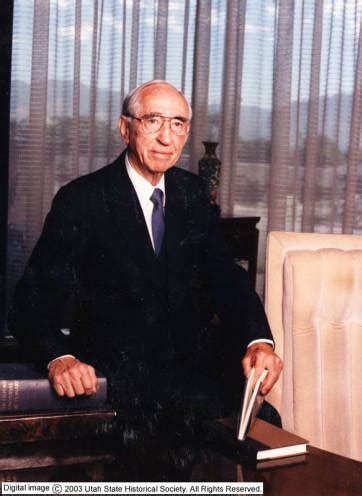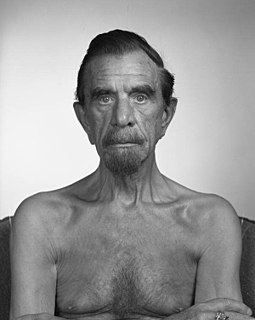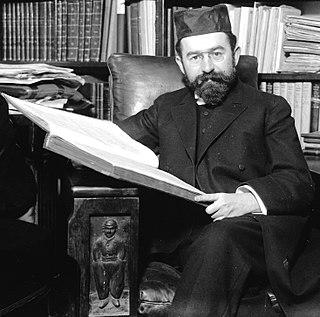A Quote by Richard M. Weaver
The true religion, it is said, is service to mankind; but this service seems to take the form of securing for him an unconditional victory over nature. Now this attitude is impious, for, as has been noted, it violates the belief that creation or nature is fundamentally good, that the ultimate reason for its laws is a mystery, and that acts of defiance such as are daily celebrated by the newspapers are subversive of cosmos.
Related Quotes
Perhaps the highest goodness attainable is a life of service to all mankind. Such an ideal is supported in nearly every page in the Gospels-the parables, the sermons, and the countless acts of service by our Lord Himself. The ideal is not limited to any particular kind of service, nor a given quantity of service. The ideal is accepting life itself as a trust to be used in the welfare of mankind. It is a life that is glad for the chance to be of any help, an attitude that 'service is the rent we pay for our own room on earth.' (Lord Halifax)
The prevailing attitude towards nature is that form of heresy which denies substance and, in doing so, denies the rightfulness of creation. We have said - to the point of repletion, perhaps - that man is not to take his patterns from nature; but neither is he to waste himself in seeking to change her face.
Religion is as necessary to reason as reason is to religion. The one cannot exist without the other. A reasoning being would lose his reason, in attempting to account for the great phenomena of nature, had he not a Supreme Being to refer to; and well has it been said, that if there had been no God, mankind would have been obliged to imagine one.
Believing that I was born for the service of mankind, and regarding the care of the commonwealth as a kind of common property which, like the air and the water, belongs to everybody, I set myself to consider in what way mankind might be best served, and what service I was myself best fitted by nature to perform.
How shall we define occultism? The word is derived from the Latin occultus, hidden; so that it is the study of the hidden laws of nature. Since all the great laws of nature are in fact working in the invisible world far more than in the visible, occultism involves the acceptance of a much wider view of nature than that which is ordinarily taken. The occultist, then, is a man who studies all the laws of nature that he can reach or of which he can hear, and as a result of his study he identifies himself with these laws and devotes his life to the service of evolution.
After decades of faithful study, ecologists have begun to fathom hidden likenesses among many interwoven systems. ...a canon of nature's laws, strategies, and principles...
Nature runs on sunlight.
Nature uses only the energy it needs.
Nature fits form to function.
Nature recycles everything.
Nature rewards cooperation.
Nature banks on diversity.
Nature demands local expertise.
Nature curbs excesses from within.
Nature taps the power of limits.
The assumption that the laws of nature are eternal is a vestige of the Christian belief system that informed the early postulates of modern science in the seventeenth century. Perhaps the laws of nature have actually evolved along with nature itself, and perhaps they are still evolving. Or perhaps they are not laws at all, but more like habits.
My reason taught me that I could not have made one of my own qualities - they were forced upon me by Nature; that my language, religion, and habits were forced upon me by Society; and that I was entirely the child of Nature and Society; that Nature gave the qualities and Society directed them. Thus was I forced, through seeing the error of their foundation, to abandon all belief in every religion which had been taught by man.
The service a man renders his friend is trivial and selfish, compared with the service he knows his friend stood in readiness to yield him, alike before he had begun to serve his friend, and now also. Compared with that good-will I bear my friend, the benefit it is in my power to render him seems small.






































